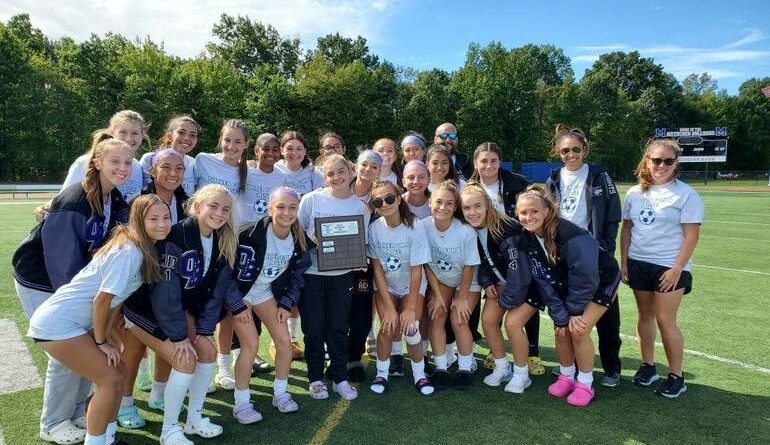How can sports programs benefit underprivileged kids?
Sports programs can play a transformative role in the lives of underprivileged kids. For children who face economic or social challenges, sports not only offer an outlet for physical activity but also contribute to their mental, emotional, and social development. Many sports charities for children work to provide these opportunities to kids who may not otherwise have access to them. In this article, we’ll explore how sports programs can benefit underprivileged children, from enhancing physical health to fostering life skills.
The Importance of Physical Health for Kids
One of the most obvious benefits of sports programs for underprivileged kids is the opportunity for physical activity. Many children in disadvantaged communities may not have access to safe spaces to play or the means to engage in organized sports. Sports programs provide a structured environment where kids can develop essential physical skills like coordination, strength, and endurance. Regular physical activity is important not just for maintaining a healthy body but also for combating childhood obesity, which can be a significant issue in lower-income areas.
Boosting Confidence and Self-Esteem
For many underprivileged kids, growing up with limited resources can affect their self-esteem. Sports offer a chance to succeed, to feel proud, and to gain recognition from peers and mentors. Whether it’s scoring a goal, winning a race, or mastering a new skill, these small victories build confidence and self-worth. As kids start to see their progress and abilities, their self-esteem grows, helping them believe in themselves both on and off the field.
Teaching Teamwork and Collaboration
Sports are inherently collaborative, requiring players to work together to achieve a common goal. For underprivileged kids, this can be an invaluable lesson. It teaches them how to cooperate, communicate, and support one another, skills that are useful in school, work, and relationships. In team sports like basketball, soccer, or football, kids learn the value of trust and teamwork—lessons they can carry with them throughout their lives.
Learning Discipline and Responsibility
In organized sports programs, there are rules, schedules, and coaches to answer to. This structure helps teach kids discipline and responsibility. They learn how to follow instructions, show up on time, and hold themselves accountable for their performance. These lessons in discipline can extend beyond the playing field, influencing how kids approach their schoolwork, chores, and even their behavior at home.
Developing Social Skills
Underprivileged kids often face social challenges, such as bullying or difficulty making friends. Sports programs provide a natural environment for kids to interact with others, fostering social skills in a positive, supportive setting. They learn how to communicate with peers, make new friends, and manage conflicts constructively. These social interactions can help build a sense of community and belonging, which is essential for emotional well-being.
Providing a Safe Haven
For many kids living in underprivileged areas, their home environments may not always be stable or safe. Sports programs can offer a safe space where kids can escape from the stresses of their daily lives. They have a place where they can focus on fun, physical activity, and personal growth. The structure and mentorship provided by sports programs can offer consistency and support, giving kids a sense of security they may not get elsewhere.
Keeping Kids Engaged and Out of Trouble
In low-income neighborhoods, there is often little for kids to do in their free time, which can lead to boredom and risky behavior. Sports programs provide an engaging alternative, keeping kids occupied with healthy activities that divert their attention from potential dangers, like substance abuse or gang involvement. When kids are involved in sports, they’re more likely to stay engaged with positive activities and avoid negative influences in their communities.
Offering Opportunities for Future Success
Sports programs can open doors to opportunities that many underprivileged kids might not otherwise have access to. For example, talented athletes can earn scholarships to attend college, even if they can’t afford the tuition. Furthermore, the skills learned in sports—such as leadership, time management, and perseverance—are highly valued in the workforce. Many successful athletes go on to have successful careers, not just in sports but in other areas as well. For kids who may not have access to a traditional education or job opportunities, sports can be a pathway to a brighter future.
Building Community Connections
Sports programs often bring together people from diverse backgrounds, creating a sense of community and unity. For underprivileged kids, these programs can help them form connections with mentors, coaches, and peers who can offer guidance and support. These relationships can be crucial in a child’s development, providing role models and helping them build a support network that extends beyond their immediate family.
Concluding Thought
Sports programs for underprivileged kids offer far more than just a chance to play—they provide a foundation for growth, development, and success in many areas of life. From improving physical health to teaching valuable life skills, sports can be a powerful tool for change. For kids who may not have many opportunities in their communities, sports programs can serve as a beacon of hope, offering them the chance to dream bigger and achieve more. Investing in these programs can have lasting benefits for both the children involved and the communities they belong to.




